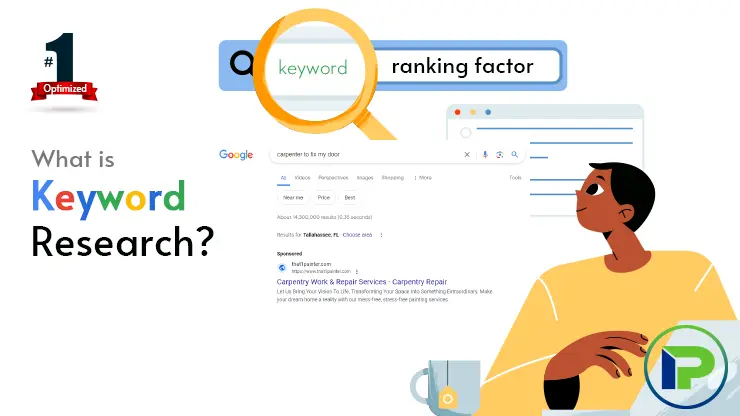Keyword research is the process of identifying words and phrases that are relevant to your business and target audience. These keywords are what people type into search engines when they are looking for information, products, or services related to your industry.
By conducting keyword research, you can understand what your target audience is searching for online, and optimize your website and content accordingly to rank higher in search engine results pages (SERPs).
Why is Keyword Research Important?
Keyword research is crucial for any SEO strategy because it helps you understand the intent behind your audience’s search queries. By knowing what keywords they are using, you can create content that is relevant and valuable to them, ultimately driving more organic traffic to your website.
Additionally, keyword research helps you identify high-volume and low-competition keywords that you can target to improve your rankings in search engine results. By optimizing your content for these keywords, you can increase your chances of appearing on the first page of search results, which can lead to more clicks and conversions.
How to Conduct Keyword Research
There are several methods you can use to conduct keyword research, including:
1. Utilize Keyword Research Tools
There are many keyword research tools available that can help you identify relevant keywords for your business. Some popular keyword research tools include Google Keyword Planner, SEMrush, Moz Keyword Explorer, and Ahrefs Keyword Explorer. These tools provide valuable insights into search volume, competition, and keyword trends, making it easier for you to find the best keywords to target.
2. Analyze Your Competitors
Another effective way to conduct keyword research is to analyze your competitors’ websites. By looking at the keywords they are ranking for, you can identify opportunities to target similar keywords and outrank them in search engine results. Tools like SEMrush and Ahrefs can help you analyze your competitors’ keywords and rankings.
3. Use Google Autocomplete and Related Searches
Google Autocomplete and Related Searches are great tools for finding long-tail keywords and related keywords that your target audience is searching for. By typing in a keyword into Google search and looking at the autocomplete suggestions and related searches at the bottom of the search results page, you can discover new keyword ideas to incorporate into your content.
4. Consider User Intent
When conducting keyword research, it’s essential to consider user intent. User intent refers to the reason behind a user’s search query, whether it’s informational, navigational, commercial, or transactional. By understanding user intent, you can create content that meets the needs of your target audience and helps them find the information they are looking for.
How to Use Keywords Effectively
Once you have identified relevant keywords for your business, it’s essential to use them effectively in your content to improve your website’s visibility in search engine results. Here are some tips for using keywords effectively:
1. Place Keywords Strategically
When optimizing your content for keywords, it’s crucial to place them strategically in your titles, headings, meta descriptions, and throughout your content. However, be sure not to overuse keywords, as this can be seen as spammy by search engines and harm your rankings.
2. Create High-Quality Content
Creating high-quality, valuable content is essential for ranking well in search engine results. By incorporating relevant keywords naturally into your content and providing informative, engaging information for your audience, you can improve your chances of ranking higher in search results.
3. Use Long-Tail Keywords
Long-tail keywords are longer and more specific keyword phrases that typically have lower search volume but higher conversion rates. By targeting long-tail keywords in your content, you can reach a more targeted audience and drive more qualified traffic to your website.
4. Monitor and Update Your Keywords Regularly
Keyword trends and search engine algorithms are constantly changing, so it’s essential to monitor and update your keywords regularly to ensure your content remains relevant and competitive. By staying up to date with keyword trends, you can continue to drive organic traffic to your website and maintain your search engine rankings.
Keyword Research isn’t a Set it and Forget it! It’s Hard Work!
Keyword research is a fundamental aspect of any SEO strategy, as it helps you understand what your target audience is searching for online and optimize your content to rank higher in search engine results. By conducting keyword research effectively and using keywords strategically in your content, you can improve your website’s visibility, drive more organic traffic, and ultimately achieve your business goals. Remember to regularly monitor and update your keyword strategy to stay ahead of the competition and continue driving valuable traffic to your website.















